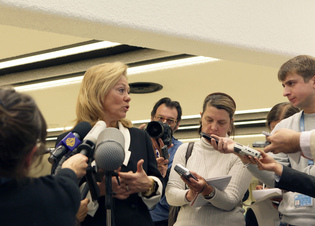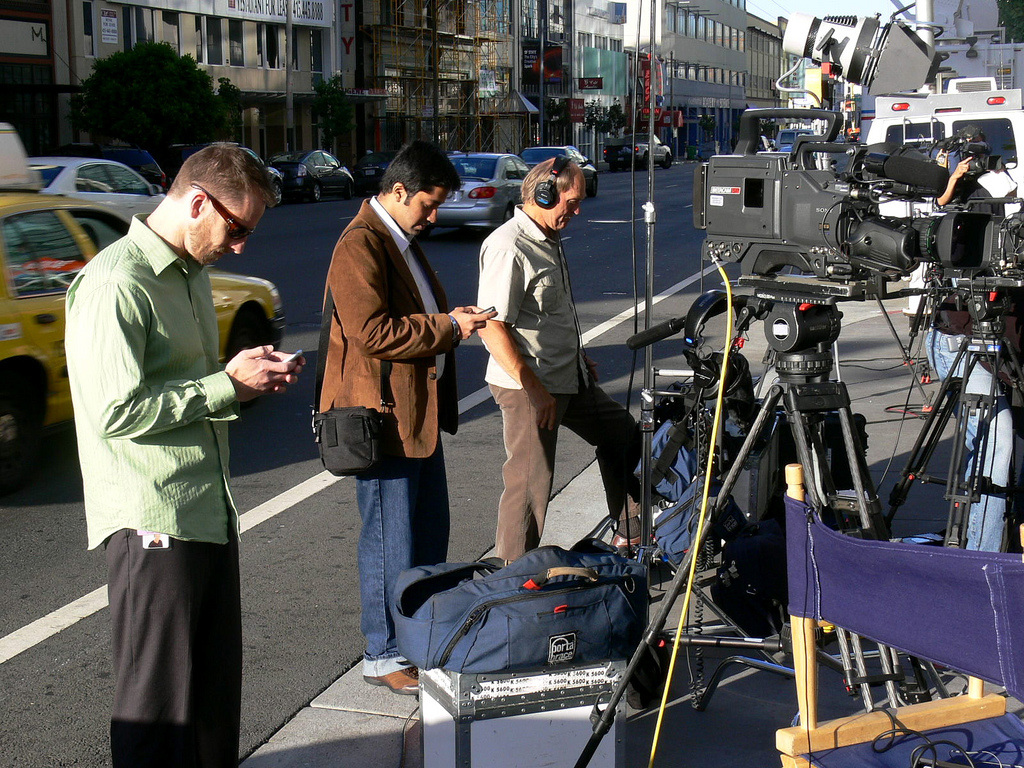|
Nothing like a fresh media campaign to remind you of what does and does not seem to work when it comes to media relations. We've recently gleaned the following points worth noting when it comes to dealing with reporters and editors, and why the process is more of an art than a science. 1. Reporters are not court reporters. They won't simply write what you script out for them in a press release. That being said, a press release can still influence how they write their story, often resulting in positive coverage. 2. You can't force the media to attend your event. No matter how good you think your story is, some in the media may not agree. This is why relationships with editors and producers are so important when it comes to pitching stories. If breaking news occurs, there's not much you can do about it except offer the chance for follow-up interviews.  3. Don't assume everyone on your media contact list will actually see or read your media advisory. Even when we send out our advisories days in advance, there are always some in the media who claim they never got it or saw it. Following up with a phone call is a good idea. 4. The media will often make their decision about whether to cover your event at the last minute. We've had discussions with TV stations who explain that, "We haven't had our morning meeting, yet," and it's an hour before the event. 5. Competing events may trump yours. Time and distance are always factors when camera crews are trying cover more than one media event. If breaking news occurs, there's not much you can do about it except offer the chance for follow-up interviews. 6. The media are rarely on time. Expect crews to show up just at or shortly after the scheduled start time. So, prepare to delay the beginning of your event. 7. Things don't always go exactly as planned. Two of our recent events were outside, and there was light rain both days. Always beware of holding events outdoors. So, even with all of your hard work and planning, there's no guarantee that your event will be covered or how it will be covered. The more newsworthy the topic and the better the visuals (crowds, placards, etc.), the more likely you'll get camera crews and reporters to attend. Mack Communications | Twitter: @mack_comm
0 Comments
Leave a Reply. |
tags
All
Archives
March 2019
|
Photos from Meet the Media Guru, Joseph.Morris, BoldContent, MDGovpics, Grzegorz Łobiński, Mr Moss, North Charleston, ITU Pictures, wistechcolleges, .v1ctor Casale., www.audio-luci-store.it, katielips, editor64, NeighborLink Fort Wayne, AMagill, timsackton, MyFWCmedia, Matt J Newman, Mr.TinDC, Skley, mikecogh, othompsonski, wayne's eye view, Elvert Barnes, woodleywonderworks, North Charleston, MoBikeFed, flossyflotsam, North Charleston, NYCDOT, US Mission Geneva, jjandames, aalborgstift, BurnAway, A. Germain, North Charleston, NCDOTcommunications, IAEA Imagebank, The Chapman Cultural Center, hitsnooze, Wiertz Sébastien, charliekwalker, cliff1066™, TheeErin, woodleywonderworks, dane brian, Aramil Liadon, 2010 World Wheelchair Basketball Championships, Ty Nigh, freddthompson, Nadia Szopinska, west.m, stormwarning., Bright Meadow, Giorgio Montersino, Chris Erwin, Aplomb, jfingas, joce01_y, Massachusetts Dept. of Environmental Protection, Kevin Walter, Andrew Feinberg, Yan Arief, kellypretzer, Korean Resource Center 민족학교, veDro - l'Italia al futuro, crdotx, US Mission Geneva, Joe Shlabotnik, esocialmediashop, Stephen Cummings, CarbonNYC, sidewalk flying, MoBikeFed, marksdk, Marco Raaphorst, Saleel Velankar, adactio, edkohler, World Economic Forum, USACE Europe District, stereogab, Florin Rosoga, MikeSchinkel


